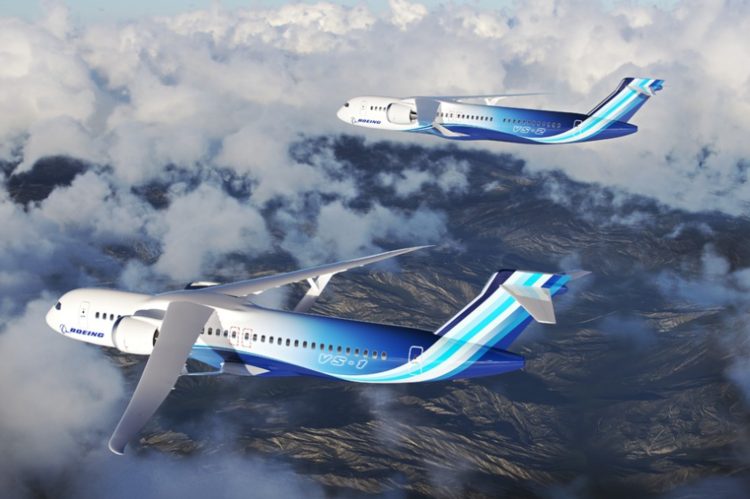
Newsnomics AJAY ANGELINA reporter | Boeing has been selected as a partner to lead NASA's Sustainable
Flight Demonstrator (SFD) initiative. Boeing will lead the overall development and flight test of the Transonic
Truss-Braced Wing (TTBW), along with its aviation industry partners Under the agreement.
TTBW is a strut-reinforced ultra-thin wing with a longer width and higher aspect ratio. When introducing
TTBW, it is expectedly possible to overcome the lack of space at the lower end of the wing, which is a limi-
tation of existing low-wing airplanes, and to mount a more powerful propulsion system.
When TTBW is introduced in a single-aisle aircraft, fuel consumption and exhaust gas emissions can be reduced by up to 30% compared to the most efficient existing aircraft as well as set the direction for future wing
designs demonstrated and tested as part of the SFD program.
The SFD project focuses on achieving the commercial aviation industry's 2050 carbon neutrality goal and the detailed goals set out in the U.S. Aviation Climate Action Plan announced by the White House.
Greg Hyslop, Boeing's senior vice president of engineering, test and technology chief engineer said, "the SFD program will make a significant contribution to moving toward a sustainable future. At the same time, it is an opportunity to design, develop and fly an aircraft that is fully experimental.”
NASA plans to provide a total of $425 million through the SFD Space Act Agreement. In addition, up to $725 million funding from Boeing and industry partners will be used to build and fund the SFD program.
Separately, Boeing recently invested $110 million in sustainable aviation research.
The TTBW airframe concept is the result of more than 10 years of development with investments from NASA, Boeing and industry. Boeing conducted extensive wind tunnel experiments and digital modeling under various NASA programs, including Subsonic Ultra Green Aircraft Research (SUGAR), to design the TTBW structure.
TTBW's initial concept research was conducted as part of NASA's Environmentally Responsible Aviation (ERA)
initiative.










